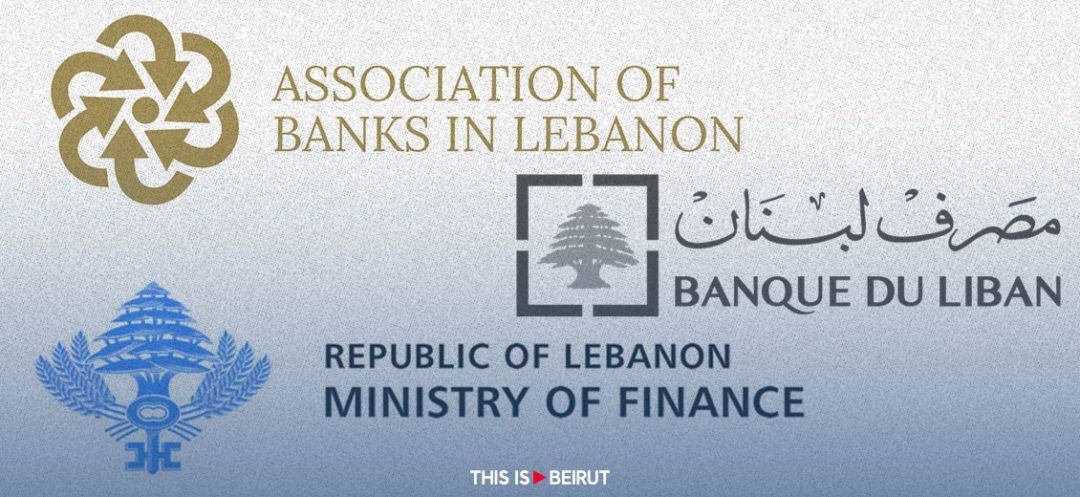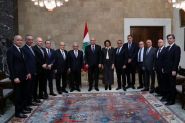
A recent decision of the State Council was accepted following a review by the Association of Banks in Lebanon (ABL), which nullified the government's directive in the financial recovery plan to cancel the Lebanese Central Bank (BDL) obligations in foreign currencies to banks.
This decision dealt a significant blow to caretaker Prime Minister Najib Mikati's plan. Sources within the ABL assert that they have thoroughly examined the details of the State Council's decision and incorporated its argument into the new review that will be presented to the State Council by 11 banks in the coming days, following the deadline to resolve the dispute. This dispute was initiated by the banks in a memorandum submitted to the Ministry of Finance (MOF) as creditors to the BDL affected by the state's failure to repay a debt exceeding $16 billion owed to the BDL. This comes in addition to the state's failure to settle debts that emerged as deficits in BDL budgets between 2015 and 2020, according to the Alvarez and Marsal report, as the said debts are deemed to have surpassed $51 billion in 2020, in accordance with Article 113 of the Code of Banking and Credit.
Nevertheless, ABL lawyer Akram Azouri is meant to hold a press conference today to discuss the outcomes of the State Council's decision. Information confirms that the 11 banks have postponed their submission of the new review to the State Council by a few days, even though the ABL lawyer has finalized the preparation of this file. It may be submitted either by the end of the week or at the beginning of next week for administrative purposes.
In parallel, all eyes are on the upcoming decision of caretaker Minister of Finance Youssef el-Khalil, to be made in coordination with caretaker PM Najib Mikati, about setting the dollar exchange rate at 25,000 Lebanese pounds instead of the initial 15,000 Lebanese pounds for withdrawals in "Lollars."
Setting an official exchange rate is of utmost importance, as the 2024 budget was issued in the Official Gazette without any clear indication of an official exchange rate, while BDL Acting Governor Wassim Mansouri insists that the decision to adjust the exchange rate must stem from the government or a decision from the Minister of Finance.
In the absence of any official decision regarding the exchange rate of the “Lollar,” the rate endorsed by the BDL on its website stands at 89,500 Lebanese pounds to the dollar. What's even more concerning is the lack of legislation governing withdrawals, making it nearly impossible for banks and the BDL to meet demands for Lebanese pounds if depositors seek to convert their dollar deposits into Lebanese pounds at the rate of 89,500 pounds to the dollar. This urgency underscores the need for the Ministry of Finance to promptly address and rectify this situation.
Banks cannot adopt the real exchange rate for withdrawals, as it would result in their retreat from the banking market due to unavailable liquidity and the unsolved issue of depositors' funds, especially following the State Council's decision to forbid the write-off of these deposits and the Lebanese government's refusal to acknowledge responsibility for the debts, leaving banks with the option to potentially file a lawsuit against the state to recover their debts.
In this regard, caretaker Prime Minister Mikati discussed the issue with Acting Governor Mansouri to seek his perspective on the matter. Mansouri voiced his opposition to the multiple dollar exchange rates, emphasizing that the rate currently used by the BDL stands at 89,500 Lebanese pounds to the dollar and noting that the major issue is the significant disparity between the black-market dollar rate and the rate that the Ministry of Finance will adopt, which suggests the possibility of a haircut on dollar deposits exceeding 65% of their actual value.
Undoubtedly, the issue of the Lebanese concept known as the "banking dollar," commonly referred to as “Lollar,” remains a topic of disagreement between the MOF and the BDL following the publishing of the 2024 budget in the Official Gazette. The BDL has confirmed that unifying exchange rates entails the banking dollar being valued at 89,500 Lebanese pounds.
All eyes are on the outcome of the intensive talks and discussions between the MOF and the BDL, under the political patronage of the highest echelons, in an attempt to bridge differences and save the situation so that the banking dollar does not remain indefinitely stagnant at the 15,000-pound mark. Efforts have been focused on the mechanism of issuing the decision and the manner of its execution, in a way that neither burdens the MOF alone nor questions the credibility of the BDL before the International Monetary Fund.
The solution reached entailed including a clause in the upcoming decision from the MOF which states, "Following consultation and coordination with the Council of Ministers and the BDL." However, Mansouri rejected this, citing an agreement with the International Monetary Fund that mandates exchange rate unification. Therefore, he cannot approve an exchange rate for the “banking dollar” outside the framework of unified exchange rates. This insistence led the MOF to refrain from issuing any decision without including the clause "after consultation, coordination and approval of the BDL."
Read more




Comments